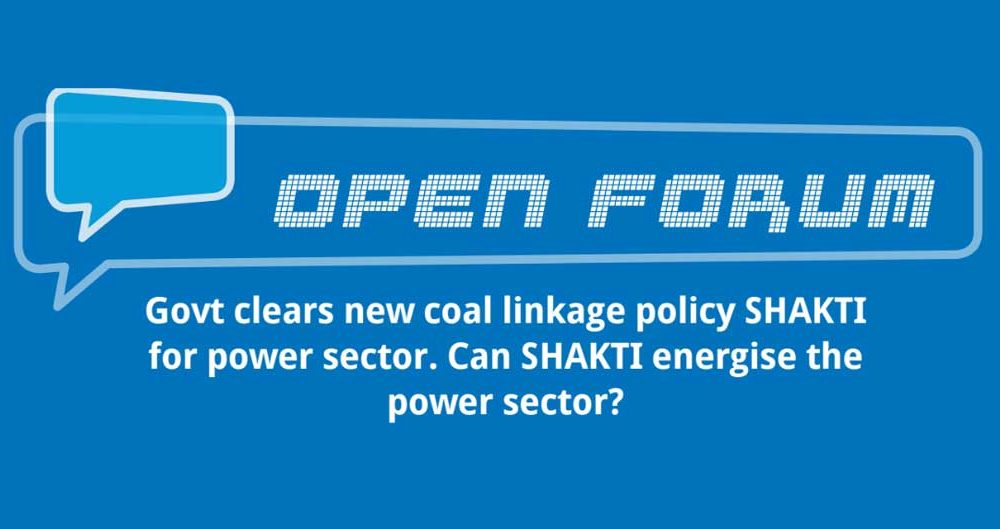Govt clears new coal linkage policy SHAKTI for power sector. Can SHAKTI energise the power sector?
By EPR Magazine Editorial August 12, 2017 3:18 pm IST
By EPR Magazine Editorial August 12, 2017 3:18 pm IST

SHAKTI (Scheme for Harnessing and Allocating Koyala {coal} Transparently in India) will give a new lease of life to the power sector. The new coal linkage policy for power plants will help producers ensure fuel supplies in an organised manner. Though the government initiatives, as well as international market conditions, have reduced the price of dry fuel and given a fillip to domestic production, there is a need to have a proper mechanism to provide coal linkage to power plants. The new coal policy fills this lacuna. The policy also integrates fuel linkage to the tariff-based competitive bidding for long-term power purchase by distribution companies with a view to ensuring that firms with fuel supplies are not deprived of PPAs and vice versa. Hence the move is likely to benefit 20,000 MW private- sector thermal capacities with PPAs. Designed to reduce coal imports, it will also ensure transparency and reduced power costs to customers.

Kunwer Sachdev, Founder & Managing Director, Su-Kam
The implementation of the new coal allocation policy namely “SHAKTI” is a positive development for the domestic thermal power generators, with a combined capacity of around 28 GW in the private IPP segment. Hitherto these were adversely affected by lack of fuel supply agreements (FSAs) for domestic coal. As per this policy, FSAs shall be signed with existing holders of Letter of Assurance (LoA) from Coal India Limited (CIL), while fresh coal linkages will be allocated through a bidding mechanism. For IPPs with PPAs, the bid parameter is discount to quoted tariff in PPA. In this context, any aggressive bidding to secure coal linkage may lead to a risk of under- recovery in variable cost. For IPPs
without PPAs, the bid parameter is premium over the CIL notified price. The risk for these projects remain high
given the slow progress in signing of long-term and medium-term PPAs by state distribution utilities and as coal
Yes, to some extent in the short term as this new policy can put back on track the power projects that have been stalled due to non-availability of coal linkages. The new capacity addition through these projects, in addition to the expected reduction of tariff at consumer and DISCOM level – due to the tariff-based competitive bidding for linkage – can drive growth in Infrastructure segment. In the long term, the overall power demand across the various market segments in the country – which remains sluggish today – will determine the full impact of this policy.

Rajiv Kumar, Director – Marketing, Electrical Sector – India, Eaton- Power Quality Pvt Ltd
We use cookies to personalize your experience. By continuing to visit this website you agree to our Terms & Conditions, Privacy Policy and Cookie Policy.